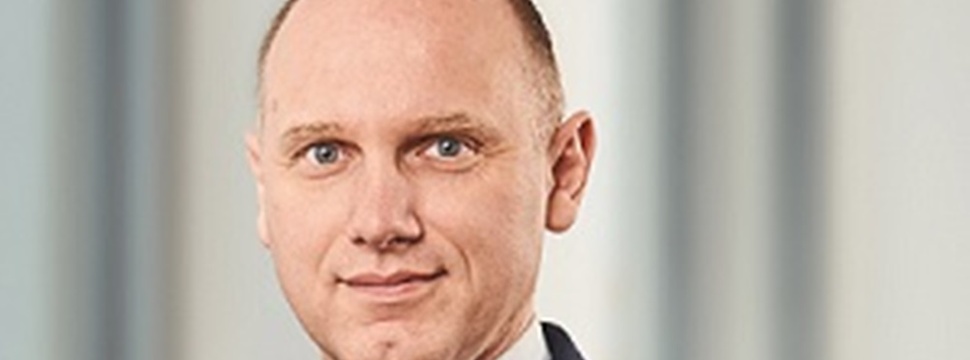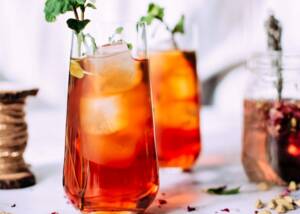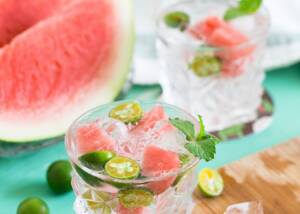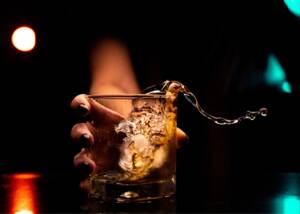'A pitch-black year for the beer market ...'
News General news
Radeberger Gruppe proves itself in an exceedingly difficult environment - strategy, portfolio and positioning resilient even under major challenges

It has been a gloomy year for German brewers: the loss of the out-of-home business and all forms of socializing for months on end, almost without replacement, has led to massive upheavals and unprecedented slumps in sales in the beer market, from which the brewing industry will recover only very slowly. In this difficult market environment, the Radeberger Gruppe has outperformed the industry: However, as a mirror of the market with commitments in all segments, it too is clearly feeling the massive impact of the Corona crisis on sales and earnings.
The largest private brewery group's view of the beer market is correspondingly sober: "The sacrifices that German brewers have also been making for almost ten months now as a contribution to fighting the pandemic have been and are enormous," explains Guido Mockel (photo), spokesman for the management of the Radeberger Gruppe. As one of numerous partners in the out-of-home market, the group is suffering along with its customers in the catering and event business, he says: "If people are no longer allowed to come together and everything sociable is not possible, this inevitably has a dramatic impact on sales of our products. And on the economic substance of all companies that operate directly and indirectly in the out-of-home market."
Thus, according to Mockel's assessment, the past year will go down in history as one of the most painful for the industry: For a long time now, the German beer market has been losing up to one million hectoliters of sales annually due to demographic change and changing consumer habits. Guido Mockel: "This loss of sales alone is hitting the industry hard. The year 2020, however, was a time machine that dramatically increases the existing pressure once again." Insiders expect a loss of sales of at least 5 million hectoliters or - more vividly - 500 million Maßkrügen that remained empty as a result of the Corona crisis. "So our industry had to absorb a drop in sales in twelve months that would have occurred organically only over an estimated five-year period. That was - and remains - an exogenous shock to the brewing industry. It will take a long time, a lot of patience and a lot of strength for the industry to recover from this impact. If this can be fully achieved at all ..."
Radeberger Gruppe delivers, but feels the effects of the crisis
In these difficult waters, the market leader in the German beer market has been able to prove itself, although it too is clearly feeling the effects of the Corona pandemic. As a result, the Radeberger Gruppe outperformed the market with a decline in sales of minus 4.7 percent (total group sales: minus 8 percent, 1.6 billion euros), gained market share and played to the strengths of its broad portfolio of regional, national and international brands. "With a strong team effort and a great deal of commitment from our employees, we succeeded in consolidating our market position and successfully seizing market opportunities as they arose, despite the crisis situation and massive marketing restrictions," says Guido Mockel. Both at home and abroad, the brewery group scored particularly well with regional brands, non-alcoholic beers and new products. "This was not a matter of course and shows us that our decision to focus on a broad range of strong brands with attractive varieties is proving its worth, even and especially now." The group of companies also sees many opportunities in this challenging environment: "Despite all the difficulties facing our market, the fact remains that beer remains a highly exciting product which, with variety, trends such as regionality, and a return to brand, offers scope for extraordinary developments," Mockel is convinced.
Lost keg beer sales hurt
However, Mockel stresses that looking at sales is only one measure of market success: while many brewers, including the Radeberger Gruppe, have been able to cushion the massive slump in keg beer sales somewhat, at least nominally, by increasing sales of bottled beer, the loss of the higher-margin keg beer business is tearing painful gaps in the company's results. "We are one of the largest keg beer marketers in Germany and supply well over 40,000 catering establishments with our beers and non-alcoholic beverages. We've been hit correspondingly hard by their months-long closure, which has led to a halving of our draft beer sales." But the crisis in the out-of-home market is not only affecting the Frankfurt brewery group's beer and beverage sales:
Long more than a brewery group
Its commitments in the catering-oriented beverage wholesale trade or in platforms for the catering trade are feeling the crisis even more acutely. But Guido Mockel confirms the company's strategy: "Of course, a broader positioning in a market segment also increases the risk in certain areas in an extraordinary, unforeseeable crisis situation like this one. However, since we are active with many pillars at various key market hubs, our diversified positioning is effective here: on the one hand, we feel the broadside of the crisis, but at the same time we can profit through some of our subsidiaries and thus partially offset losses. So there couldn't be a more meaningful test for our strategy."
The assessment of the divisions varies accordingly: While the associated catering-oriented beverage wholesalers are suffering from the months-long withdrawal of their business basis and will have to adjust to a reduced volume of business in the medium term, other subsidiaries and shareholdings of the Radeberger Gruppe have been able to develop pleasingly. In particular, the associated largest German specialist beverage store chain, Getränke Hoffmann, made optimum use of the increased consumer demand in this sales format: it not only recorded significant sales growth, but also attracted new consumers to its range on a sustained basis. And even better: Getränke Hoffmann even outperformed the market average in the beverage specialist store sales channel, which was strengthened across the board under the influence of the Corona crisis - and thus gained market share.
The beverage delivery business, which the Radeberger Gruppe set up and expanded a good three years ago under the Durstexpress brand, was able to benefit encouragingly from the increased trend towards e-commerce during the crisis: With a perfect solution for contactless, fast and convenient beverage purchases, Durstexpress has won over a steadily growing number of customers to its offering on a sustained basis, even and especially during the crisis: as a result, the beverage delivery service has been able to dynamically expand its customer base and further increase its sales. "Durstexpress impressively proves that consumers are looking for new ways to meet their daily needs. Our decision to get involved in this field was spot on. Here, our employees have created a forward-looking solution that shows that e-commerce also works for beverages," emphasizes Guido Mockel.
The group's drop shipment business, especially under the umbrella of Deutsche Getränke Logistik (a joint venture with the C. & A. Veltins brewery), is also benefiting from increased demand for bottled beer in food retailing and beverage cash-and-carry markets, while H. Leiter, Germany's leading reverse logistics company, is proving to be an important pillar of a functioning returnable system, even during the crisis.
Industry must prepare for another difficult year
"So we are working with light and shade, literally breathing with the measures taken by the German government to combat the pandemic, but we also know that even if we can get through this phase as a group of companies - every extra day that the out-of-home market remains closed entails structural changes, sales losses that are almost impossible to make up, and reduced business volumes in the long term for all players in this market," says Guido Mockel.
Outlook
The market leader's outlook for 2021 therefore remains cautious, but it is becoming increasingly clear that a reopening of the out-of-home market is not foreseeable in the short term, and even an extension of the lockdown into the season can no longer be ruled out today. "2020 was already a pitch-black year for brewers - and 2021 is also starting under difficult omens," says Guido Mockel. Now it is a matter of making the best possible use in the industry of the time until it will again be possible to meet friends in the gastronomy, to attend concerts, festivals or sporting events and to experience conviviality: "Even if it is difficult to keep that in mind at the moment: This crisis will pass. Then we will also lick our wounds in our industry - and with our partners in the catering trade, we will once again take off strongly," predicts the company boss. The Radeberger Gruppe will make the most of its broad positioning - and continue to seize market opportunities with determination: "We are ready in all parts of our group of companies and continue to plan with confidence, courage and fresh impetus, fully aware that the beer market is undergoing a dynamic process of change - and not just because of Corona," Guido Mockel emphasizes. And he adds, "It's clear that this won't be a walk in the park, it'll be a marathon with lots of hardships. But we have staying power and plenty of stamina."










